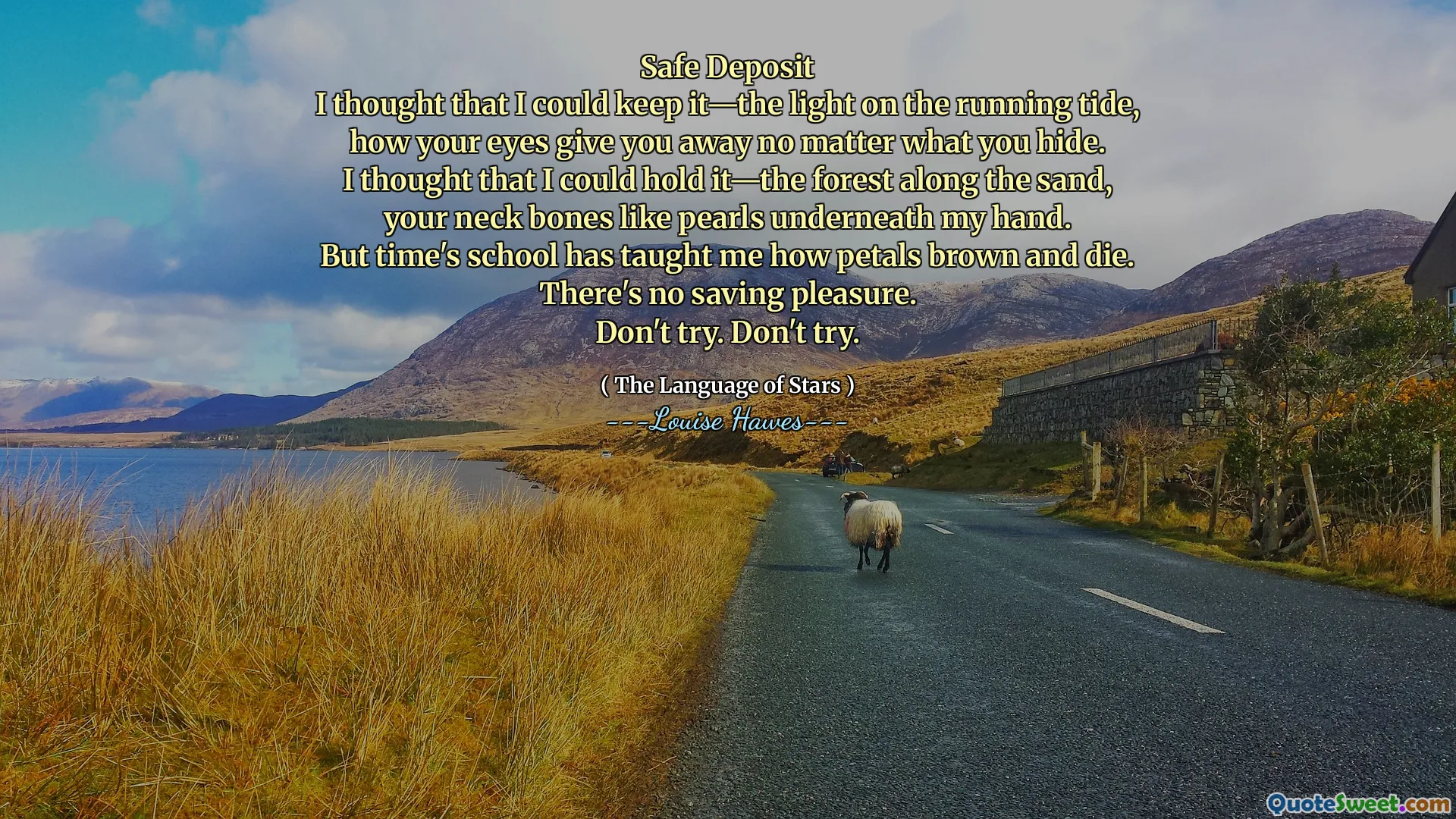
Safe Deposit I thought that I could keep it—the light on the running tide, how your eyes give you away no matter what you hide. I thought that I could hold it—the forest along the sand, your neck bones like pearls underneath my hand. But time's school has taught me how petals brown and die. There's no saving pleasure. Don't try. Don't try.
This poem captures a poignant exploration of impermanence and the futile desire to capture or preserve fleeting moments of beauty and intimacy. The speaker initially believes it possible to retain ephemeral experiences—symbolized by "the light on the running tide" and "the forest along the sand"—which evoke both natural imagery and emotional depth. The mention of "your eyes" and "your neck bones like pearls" introduces a personal, intimate layer that underscores the connection between the speaker and another person.
However, the poem gently but firmly disrupts this hopeful desire. The metaphor of "time's school" conveys hard-earned wisdom recognizing that everything beautiful is transient—as reflected in the line "how petals brown and die." This represents life’s inevitable processes of change, decay, and loss. The final repetition, "Don't try. Don't try," is both a resignation and advice: that attempts to possess or hold onto pleasure are ultimately in vain. Instead, it subtly suggests an acceptance of temporality.
This reflection leads me to think about the human condition and our collective struggle with impermanence. We are constantly caught between longing to freeze perfect moments or feelings and the reality that life flows on relentlessly. The poem invites embracing this flow, implying peace may be found not through holding on tightly, but by cherishing experiences as they come and go. It’s a tender reminder that while beauty and love can’t be saved indefinitely, they profoundly imprint our existence during their fleeting time.




